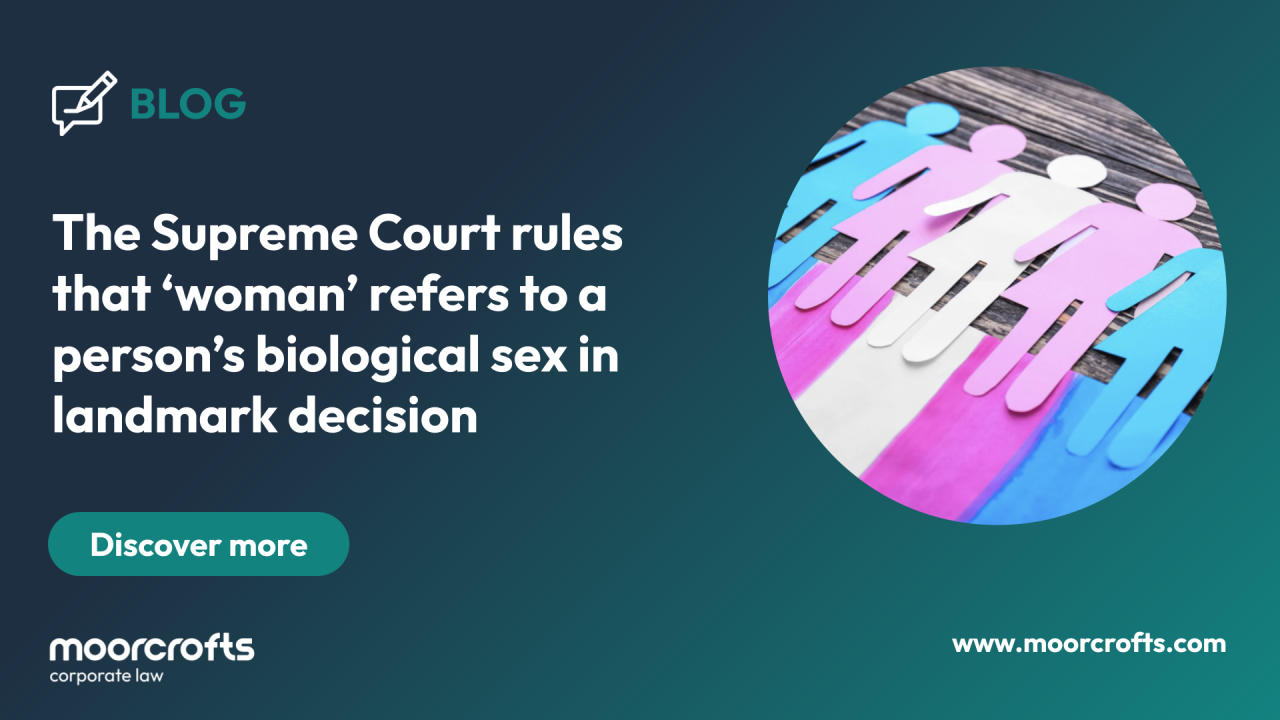The Supreme Court rules that ‘woman’ refers to a person’s biological sex in landmark decision
The landmark judgment of the Supreme Court in the case of For Women Scotland Ltd v Scottish Ministers has ruled that the terms ‘woman’, ‘man’ and ‘sex’ in the Equality Act 2010, are to be interpreted in relation to a person’s biological sex.
This means that a trans person with a gender recognition certificate (GRC) will be recognised as their biological gender and not their acquired gender, when considering the Equality Act 2010 legislation. Importantly, this does not diminish the rights or protections available to trans individuals. A trans person with a GRC continues to be recognised in their acquired gender and remains fully protected under the Equality Act 2010, both as a trans person under the protected characteristic of gender reassignment, and as someone of their acquired gender — for instance, as a woman.
The impact of this ruling will be felt across the board with some groups and individuals celebrating the decision whilst others are left feeling further marginalised and critical of the judgment.
However, this decision will also be felt by employers who should now be reviewing their Staff Handbook and Policies to ensure that any definition of ‘woman’ is compliant with the Supreme Court ruling, and they may want to consider providing diversity training for staff to explain the implications of the ruling.
Where employers have single sex services and spaces (such as toilets, changing rooms or other areas) they should also be considering their policies and use of these services/areas to ensure that this is in accordance with the Supreme Court ruling.
Employers should be mindful when introducing any changes as some changes may lead to the exclusion of transgender individuals who hold a recognition certificate from such spaces, as their biological gender is what is to be considered when determining their eligibility to use the space.
The Supreme Court made it clear that this ruling did not remove or diminish the important protections available for trans people, and they continue to be protected, under the Equality Act 2010, against discrimination due to their gender reassignment and sex discrimination due to the perception or association with their acquired gender.
The Supreme Court gave clear examples of the protection afforded to transgender individuals, and this is noteworthy for employers:
Take, for example, a trans woman who applies for a job as a sales representative and the sales manager thinks that she is a biological woman because of her appearance and does not offer her the job even though she performed best at interview and gives the job instead to a biological man. She would have a claim for direct discrimination because of her perceived sex and her comparator would be someone who is not perceived to be a woman. The fact that she is not a biological woman should make no difference to her claim, which would be treated in the same way as a direct discrimination claim made by a biological woman based on the sex of the complainant herself.
A trans woman is also protected as a trans person under the characteristic of gender reassignment, ensuring an additional layer of protection against discrimination, victimisation, or harassment because of her transition or identity.
This highlights the importance of training for all staff in relation to diversity and equity, especially in light of the new duty on employers, under The Worker Protection (Amendment of Equality Act 2010) Act 2023, that came into force in October 2024 but also the need for training and implementation of a fair and transparent approach to recruitment and human resources.
For a review of your Employment Policies and Procedures or for staff training, please contact our Employment Team.



